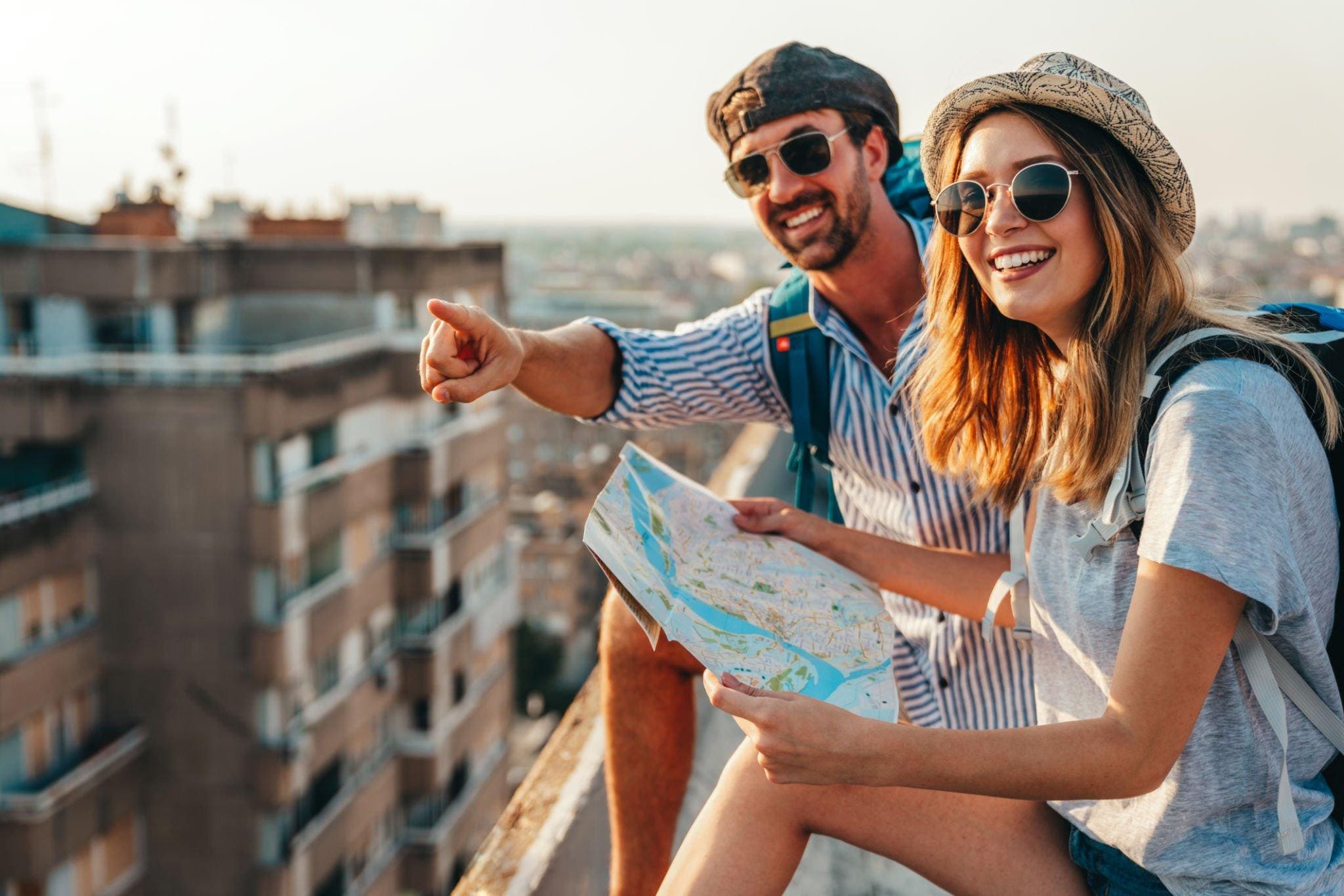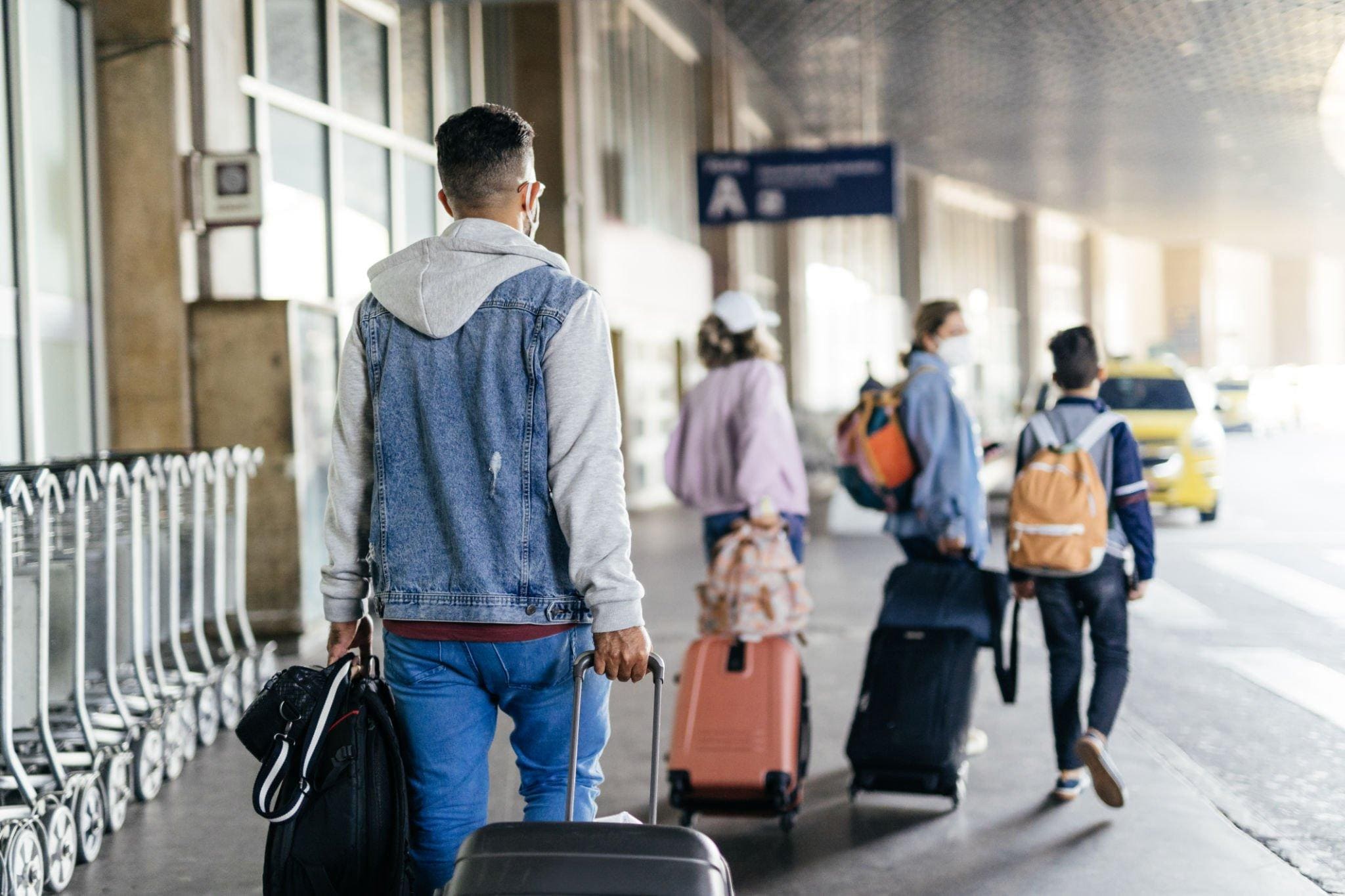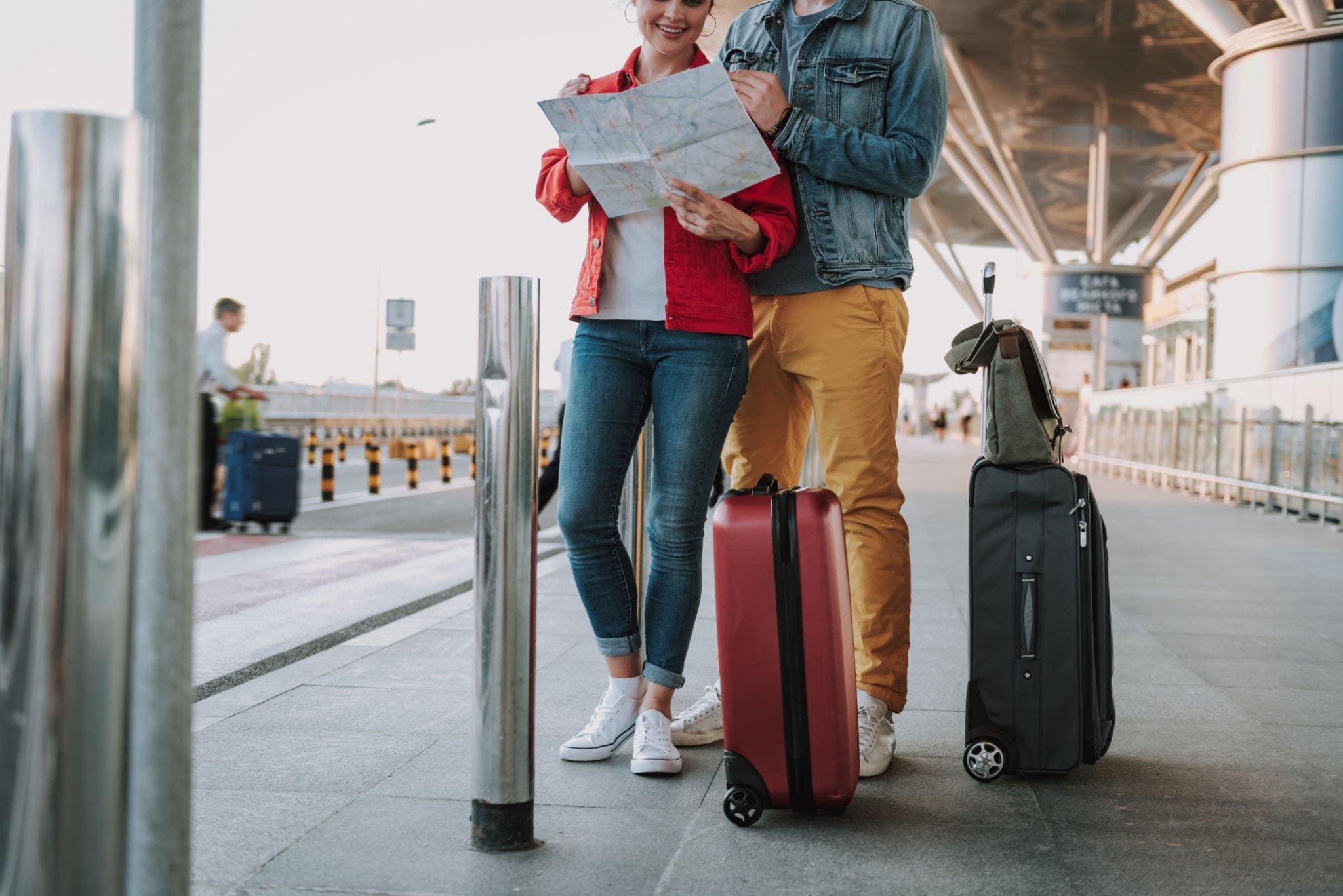Tips
How to plan a trip without a travel agency

Traveling without the participation of a travel agency can be an unforgettable and unique experience even for experienced travelers. In addition, you will get at least two advantages - you will save money and be able to plan your actions yourself, rather than letting someone lead you by the hand. However, planning them can seem like a daunting task. In this article, we will look at the basic steps and aspects that will help you organize an independent trip, enjoy the planning process and enjoy an incredible trip experience.
Define the goal and budget
Defining your goal and budget is the first and most important step when planning any trip without the participation of a travel agency. These two factors will guide the rest of your trip.
First ask yourself the question: “What exactly do I want to achieve with this journey?” Define your goals. This could be relaxing on the beach, exploring a new culture, adventure in the mountains, hitchhiking, cultural exchange and much more. It is very important to understand what exactly attracts you to this trip.
After that, set a budget for your trip. How much are you willing to spend on tickets, accommodation, food, entertainment and additional expenses? Consider all possible costs to avoid financial surprises during your trip. To the final amount, add another 10-15% on top for unforeseen expenses, set this money aside and forget about it. This will be an emergency supply.
Defining your goals and budget will help you know where you can travel and what you can afford. This will also help you narrow down your destination choices and optimize your travel plan to suit your preferences and resources.

Select destination and date
Choosing a place and date is the next important step when planning your trip on your own. The right location and time frame can make a big difference to your experience and budget.
- Season and weather. Weather conditions are of great importance when choosing a travel date. Some countries are best visited at certain times of the year. For example, Switzerland and Austria provide excellent opportunities for winter activities, while for beach holidays it is better to choose southern countries such as Spain or Greece in the summer months.
- Budget. The cost of a holiday can vary significantly depending on the country chosen. For example, holidays in Southeast Asian countries such as Thailand or Vietnam can be significantly more affordable compared to Scandinavia or Switzerland, where prices for accommodation and food can be noticeably higher.
- Events and holidays. Explore cultural events and celebrations that may be happening in your chosen country during your trip. Attending such events can make your trip more colorful and interesting.
- Popular tourist spots. Please note that popular tourist spots are often more expensive and more crowded during peak season. Consider visiting lesser-known places to save money and create a more unique experience.
- Price comparison. It is important to compare the cost of accommodation, food and entertainment in different countries before making a final decision. For example, you may find that Greece provides more affordable holiday options compared to Italy, while maintaining many historical and cultural riches.
The choice of location and date should suit your interests, budget and weather conditions to make your trip enjoyable and memorable.
Planning the route
Planning a route is a key stage when organizing an independent trip. This stage helps you make the most of your time and resources to see exceptional sights and experience local culture.
- Drawing up a route. Develop a route, determining the order in which the places will be visited. Consider the distances between them and estimate the time required to move.
- Booking tickets and accommodation. At this stage, you can use online platforms such as Heybus to book bus tickets at competitive prices for your trip to Europe. This will allow you to save time and money.
- Time distribution. Plan how much time you want to spend in each location. Don't forget to leave free time for unexpected discoveries and relaxation.
- Maintain flexibility. Remember that travel is an adventure and things won't always go according to plan. Flexibility in changing your route or plans can lead to unexpected discoveries.
Planning your route gives you control over your journey and helps you create the best possible experience. Don't forget that Heybus is a great online platform for booking bus tickets at competitive prices, making your travel even more convenient and affordable.

Preparation of documents and visas
Preparation of documents and visas is one of the most important stages, especially when planning an international trip. Doing this step correctly can prevent unpleasant surprises and ensure hassle-free entry into your destination country.
- Passport. Make sure your passport is valid for the duration of your trip and has enough blank pages for visas and stamps. If your passport is about to expire, apply for a renewal in advance.
- Visa. Check whether you need a visa to enter the country you are going to visit. Different countries have different visa rules and requirements. Some countries offer the possibility of obtaining a visa on arrival, while others require pre-registration.
- Copies of documents. Make copies of important documents such as passport, visa, insurance, tickets and accommodation reservations. Keep them separate from the originals.
- Vaccination. Check to see if you need certain vaccinations or immunizations to visit the country. Some countries may require a vaccination certificate.
- Additional documents. Prepare other necessary documents, such as tickets, accommodation reservations, driver's license (if necessary), bank cards, etc. Also note that under martial law, certain categories of citizens are prohibited from leaving the country. If this applies to you, do not forget to obtain permission to leave.
- Rules and recommendations. Research the rules and guidelines for travelers in your chosen country, such as customs regulations, local customs, and language. This will help avoid misunderstandings and unpleasant situations.
Preparation of documents and visas is the key to a successful and comfortable trip. Take care of this in advance to avoid unnecessary stress and delays at the border.
Consideration of insurance and medical care
Considering insurance and medical coverage is a critical aspect of travel planning to ensure your safety and protection in unexpected situations abroad.
- Health insurance. Before you go, make sure you have health insurance that covers medical expenses in case you get sick or injured while traveling. Check your insurance to make sure it covers the places you plan to visit.
- Insurance validity period. It is important that the insurance is valid for the entire period of your stay abroad. Find out how to extend your insurance if your trip takes longer than planned.
- Medical and emergency assistance. Make a note of the emergency numbers and contacts of the nearest medical facilities in your location. In case of an accident or illness this can be very useful.
- Copies of documents. Make copies of your health insurance, passport and other important documents. Keep them separate from the originals and provide copies to your accompanying person, if you have one.
- Procedure for obtaining medical care. Familiarize yourself in advance with the procedure for obtaining medical care in your destination country. Find out what documents and procedures are required for a consultation with a doctor.
- Preventive measures. In addition to insurance, take preventative measures such as vaccinations and health precautions to minimize the risks of disease.
Insurance and medical care planning are a guarantee of your well-being during your trip. Hoping for the best is good, but being prepared for the worst is even more important.

Identification of luggage and its packaging
Luggage identification and packing are important aspects of travel that affect how comfortable and organized you are during your trip.
- Definition of baggage. Decide how much luggage you will need for your trip. This may depend on the length of your trip, the type of destination and your individual needs. Check the baggage transportation rules.
- Making a list. Make a list of things you would like to take with you. Divide it into necessary and optional items to optimize your luggage.
- Packaging. Pack your items neatly and organized. Use bags or suitcases with dividers to separate clothes, shoes and accessories. Don't forget to bring a bag for your personal belongings.
- Important documents. Keep important documents such as your passport, tickets, accommodation bookings and health insurance in a separate bag or folder so they are easily accessible when needed.
- Personal items. Pack personal items such as medicines, hygiene products and electronic chargers in your luggage.
- Optimization of space. Make the most of your luggage space. Pack items neatly and use compact bags and bags to compress clothing.
- Liquid restriction. Follow the restrictions on carrying liquids and cosmetics in hand luggage. Place them in special transparent bags.
Properly packing your luggage can make your trip more organized and enjoyable, and also helps avoid problems during transportation.
Cultural and language preparedness
Cultural and language preparation is an important part of successful travel, especially if you are traveling to a country with a different culture and language. Here are some key steps:
- The study of culture. Get to know the main aspects of the culture, customs, traditions and religious practices of the country you are visiting. This will help you be more respectful and adapt to the local environment. For example, some gestures that may be considered acceptable in Ukraine may be extremely offensive and obscene in other countries. Be sure to take this into account before your trip.
- Language training. Try to learn basic phrases and expressions in the local language. Even a little knowledge of the local language can be useful and appreciated by local residents.
- Rules of communication. Learn about the culture's rules of communication, such as forms of greeting, respectful expressions, and how to communicate with locals. For example, speaking loudly is considered normal in Ukraine, but in Poland it may be considered obscene in some cases.
- Clothing. Consider the clothing requirements of the local culture, especially if you plan to visit religious sites. Some countries have certain standards for clothing. This mainly applies to Muslim countries, where the rules may be stricter. In European countries, such rules are usually present only for certain events or important religious places.
- Food and table manners. Study what food is traditionally eaten in a given country, and what peculiarities there may be in dining manners. This will help you feel more comfortable at the table.
- Safety. Research your country's safety and health regulations. This includes knowledge of local laws and health services available to foreign visitors.
Cultural and language preparation will not only enrich your experience, but will also help you avoid misunderstandings and create a positive impression on locals. This is the key to a harmonious and interesting journey.
Conclusion
In conclusion, traveling is definitely one of the most amazing and enriching experiences in life. However, to make it more comfortable and memorable, careful planning is important. Determining goals and budget, choosing a place and date, preparing documents and packing luggage, taking into account cultural characteristics and language - all these aspects play an important role.
Modern technologies, such as the Heybus online ticket booking platform, make travel easier, more accessible and convenient. However, regardless of all the technical assistance, the main goal remains to enjoy the trip, immerse yourself in new cultures and create unforgettable memories. Ultimately, travel enriches us with knowledge, diversity and respect for different cultures, making it an indispensable part of our lives. Don't forget that as a tourist, you are a guest in a foreign country. Follow the rules of “someone else”s house” - your responsibility.
Elena Chernenko
Elena is a recognized expert in the bus transportation industry. With a deep understanding of the industry and a wealth of experience, Elena has earned a reputation for reliability working with both large carriers and private companies. Her expertise includes route planning, safety analysis and efficiency of transportation solutions.
In her blog, Elena offers professional advice, reviews current market trends and shares her experience to help readers better understand the world of bus transportation.
Related publications
January 26, 2026
January 05, 2026




